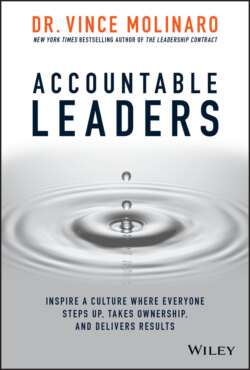Читать книгу Accountable Leaders - Vince Molinaro - Страница 30
3. Revolutionizing Work
ОглавлениеWork is a topic that has always been near and dear to my heart. Early in my working life, as a career counselor, I saw the way that meaningful work changed the lives of marginalized people. Now the future of work has taken center stage as a bona fide global obsession. Every week, I get a flood of surveys, studies, commentaries, and editorials, all talking about the future of work and jobs, many with dire and even apocalyptic headlines. I’m sure you do as well. But as I read these reports, studies, and predictions, I can’t help but feel that we have been here before. This was the case for me in 1990 when I was a budding entrepreneur and starting my first consulting business. To be effective, I had to be on top of all the research on careers and the future of work. Back then, the uncertainty about the future of work, reskilling, and retraining was just as intense as it is today. We were awash in predictions about job loss, the role of technology in reshaping the workplace, and the dream of a future of leisure. What was different then was that we were only a decade away from the year 2000. If you were around then, you know that the year 2000 represented the future. That year did come, and some predictions about the future of work materialized. However, many did not.
Just like then, today there’s a vast range of predictions and forecasts about the future of work. The Guardian recently went so far as to ask if jobs would even exist in the future.22 The article quoted business journalist Richard Newton offering a very pessimistic view of the future: “This is either going to be very good or very bad—and either way there’s not going to be much in the way of work.” Oxford University recently reported that nearly half of all jobs that exist today would not be around tomorrow.23 What do you believe?
I believe it is essential to not get caught up in the hype regarding the future of work. There are more balanced perspectives to consider. For example, a recent Harvard Business Review article estimated that only 5 percent of all occupations would be fully automated.24 However, all jobs will evolve as intelligent machines take over many physical, repetitive, or basic cognitive tasks. The critical work that remains will require more technical and digital skills. It will also require more human interaction, creativity, and judgment. I completely agree. I’m all for freeing people up from mundane and repetitive work and unleashing human ingenuity and passion. Leaders must be able to unleash these capabilities in the people they lead, both today and in the future.
Work is already revolutionizing in front of our eyes. I believe leaders have a profound obligation to the people they lead to help them through the next decade. Unfortunately, some predictions about the nature of work in the future paint a grim picture of work devoid of meaning. As a result, I believe that creating an inspiring work environment in which to work will be even more critical in the future than it is today. Culture will continue to matter, and we’ll need leaders who get that. I believe the debate going on is not only about jobs. It’s also about the quality of the employment experience and whether leaders focus on employee well-being and creating a sense of connectedness in workplaces.
What does all this fervor about the future of work mean to you as a leader? The people you lead will be looking to you for your perspective. They are coming to work worried about whether a robot will replace them. Heck, you and I might be replaced by one as well. You need to be able to have these discussions. Your company will need to demonstrate it is taking action to support retraining and reskilling. The companies seen as leading the charge in reshaping the future of work will win in the future. Those that invest in developing their people will attract and retain the best talent. Leaders also need to focus on employee well-being, and on creating a sense of belonging, inclusiveness, and connectedness in our workplaces.
